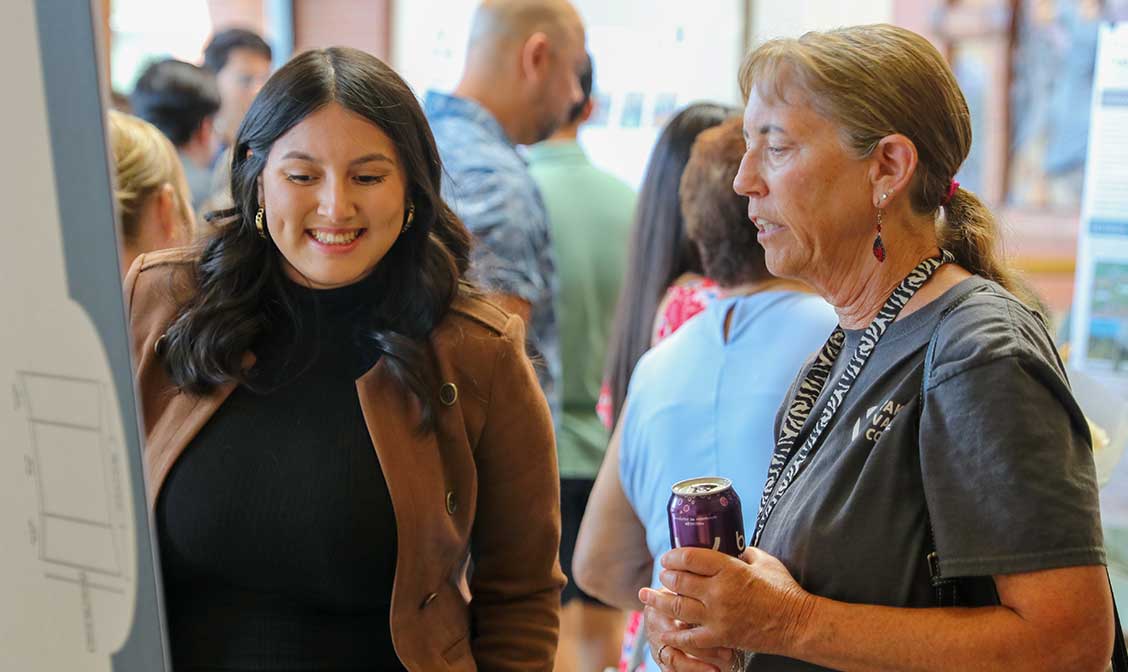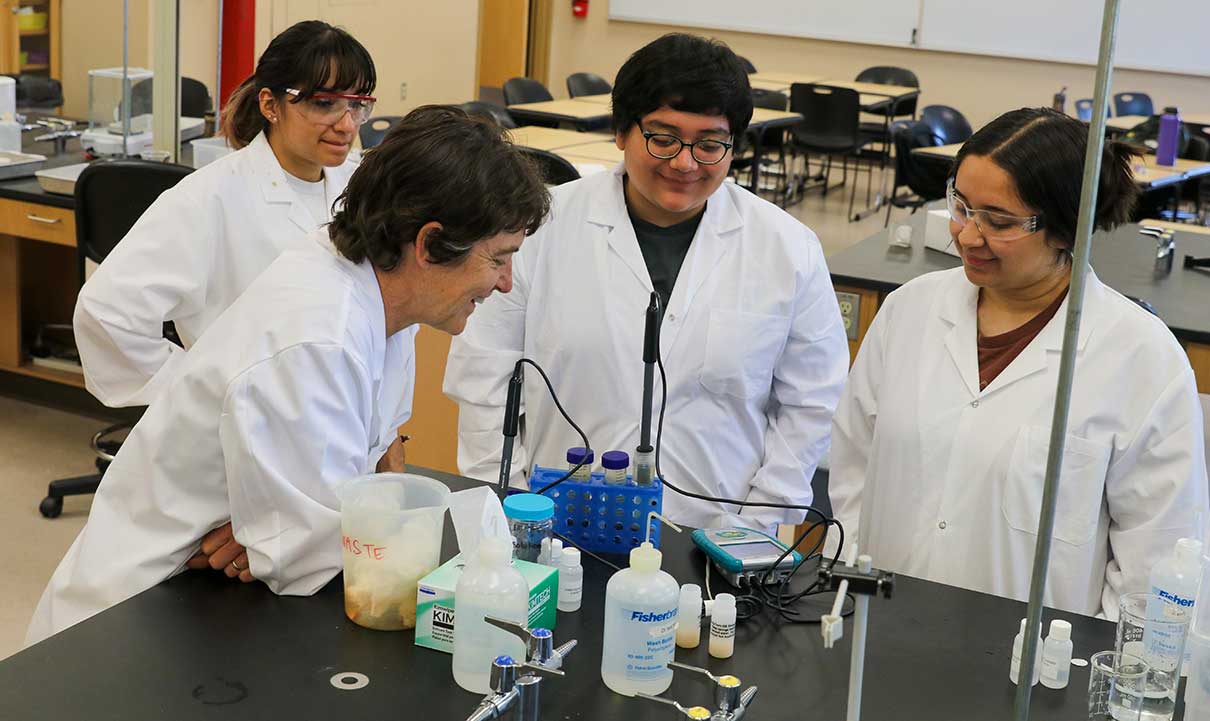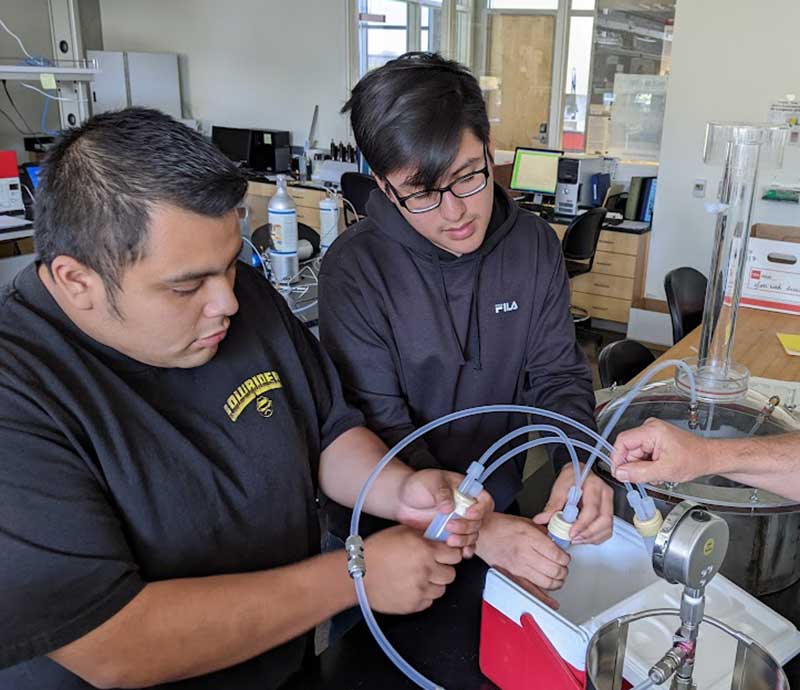“I think my biggest achievement [at YVC] has been working on an undergraduate research project. It showed me that I’m doing big things and making progress in my education,” says Yakima Valley College student Ryn Gonzalez.
Gonzalez was one of 20 STEM students who engaged in community-based research projects this past summer. The projects helped students develop hands-on, practical skills while also studying issues of interest to local communities and industries.
For her project, Gonzalez worked with Karen Wright, pollinator taxonomist for the Washington State Department of Agriculture, finding the native population of bees in Washington.
“It was a great learning experience for me and helped me realize that we didn’t have that much information in Washington on the various types of bees,” said Gonzalez.
The projects provided Gonzalez and her fellow students with valuable experience both in the lab and in the field, along with the opportunity to work with a variety of community partners.
“I had so much fun this summer and presenting our research findings. Everything for me was such a big step and overall great experience,” said Gonzalez, who is training to become a doctor and help women overcome fertility issues.

Other projects that students worked on this year included:
- In partnership with Washington State University and the Washington Department of Ecology, students helped measure emissions from various composting processes. The data from this study will be used to help advise practices in the state as to the best way to compost, minimize emissions and expand the amount of material composted.
- Through the use of DNA technologies, students addressed research questions centered on the efficacy of RNA interference as a potential biopesticide against codling moth in collaboration with the U.S. Department of Agriculture (USDA) Agricultural Research Service.
- In a continuation of a project started last year, students worked in partnership with the USDA to conduct research studies in Yakima Valley orchards to determine the best strategies for releasing beneficial insects.
- An investigation into elements of the nitrogen cycle in agricultural and non-agricultural soils to determine the potential contributions of microorganisms to soil fertility using chemical testing, microbial cultivation and genetic sequencing techniques.
- Students collected water samples from Yakima Valley streams and rivers and analyzed those samples through molecular techniques, such as DNA sequencing and chemical analyses, to test a variety of hypotheses and document water quality.
More than 250 YVC students have participated in STEM research since 2012. Learn more about YVC’s STEM pathway and programs of study.

